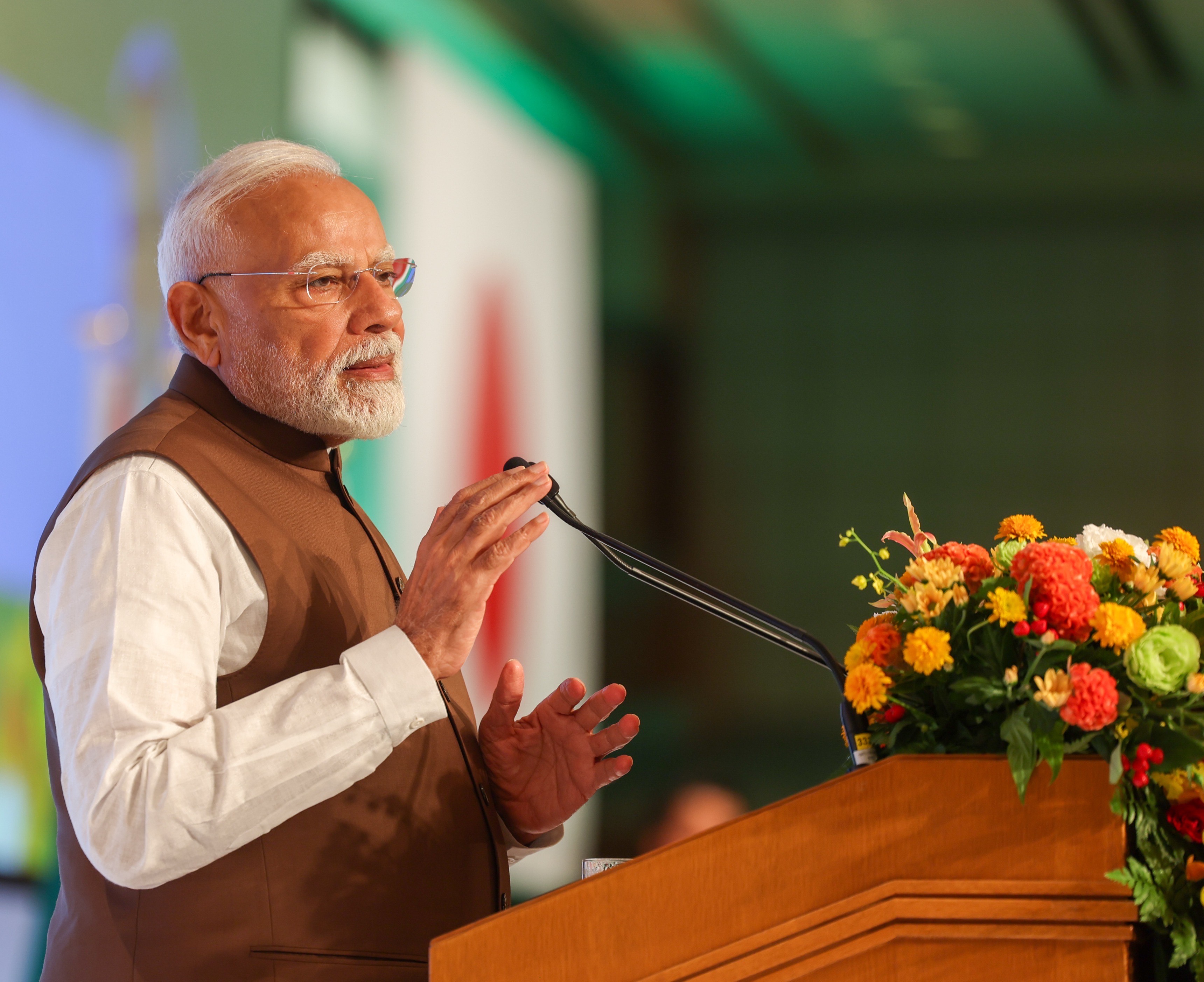Indian PM Modi Urges Stronger India–Japan Business Ties at Tokyo Forum, Highlights $40 Billion Japanese Investment
Speaking at the India–Japan Economic Forum in Tokyo on August 29, Indian Prime Minister Narendra Modi urged deeper bilateral engagement across manufacturing, innovation, green energy, infrastructure, and human capital, underlining Japan’s longstanding contribution to India’s economic growth.
Prime Minister Narendra Modi, in his first engagement after arriving in Tokyo, addressed top business leaders from both nations alongside Japanese Prime Minister Fumio Ishiba.
 |
| Image Source: PM NaMo |
He noted that Japanese firms have invested over $40 billion in India, with $13 billion of that arriving in just the past two years.
Citing data from JBIC and JETRO, he said 80 percent of Japanese companies in India are looking to expand, and 75 percent are already profitable. “In India, capital does not just grow -- it multiplies,” Modi said, reflecting the government's confidence in India's economic fundamentals.
The Prime Minister emphasized the transformation India has undergone over the past eleven years, stating that the country now offers political stability, economic clarity, and predictable policies.
He highlighted that India is the fastest-growing major economy in the world and is poised to become the third-largest global economy.
With India contributing 18 percent to global growth, maintaining strong capital markets, low inflation and interest rates, and foreign exchange reserves of approximately $700 billion, Modi underlined the country’s sound economic footing.
He attributed these gains to a sustained policy of “Reform, Perform, and Transform,” pointing to measures such as the implementation of the Goods and Services Tax in 2017 and the recent passage of a simplified income tax code.
He also detailed the government’s steps to simplify regulations, including reducing 45,000 compliances and setting up a digital single-window approval system for businesses.
Sectors such as defence, space, and now nuclear energy, he said, have been opened up for private participation.
Modi stated that these reforms reflect India’s determined push toward becoming a developed economy and noted the global recognition this has received.
Referencing a recent S&P Global upgrade of India’s credit rating after two decades, he remarked that “the world is not just watching India, it is counting on India.”
Addressing the India-Japan Economic Forum in Tokyo. Strong business ties between our nations are a vital element of our friendship. https://t.co/OUSvy98eJo
— Narendra Modi (@narendramodi) August 29, 2025
The Prime Minister acknowledged the release of the India–Japan Business Forum report and congratulated the companies involved for advancing bilateral cooperation. He proposed deeper collaboration in five specific areas.
In manufacturing, he called for replicating the successful India–Japan partnership in the automobile sector across robotics, semiconductors, shipbuilding, and nuclear energy. He extended an open invitation to Japanese firms, saying, “Come, Make in India, Make for the World,” citing examples of Suzuki and Daikin.
In technology and innovation, Modi described Japan as a "tech powerhouse" and India as a "talent powerhouse," proposing that this synergy could drive the next global technology revolution in fields such as artificial intelligence, quantum computing, biotech, and space.
On green energy, he outlined India’s target of 500 GW in renewable capacity by 2030 and 100 GW of nuclear power by 2047, and welcomed the recent India–Japan agreement on a Joint Credit Mechanism for green transition projects.
Modi also spoke of India’s strides in next-generation infrastructure, pointing to the doubling of port capacity, the operationalisation of over 160 airports, and 1,000 km of new metro lines.
He cited ongoing work on the Mumbai–Ahmedabad high-speed rail as a prime example of bilateral cooperation. Stressing Japan’s technological excellence and India’s scale, he described the potential of a “perfect partnership” in infrastructure growth.
On the issue of skill development, the Prime Minister urged Japanese companies to invest in training Indian youth in the Japanese language and soft skills, to create a “Japan-ready” workforce that would serve both nations’ needs and contribute to shared prosperity.
Concluding his remarks, the Prime Minister described the India–Japan partnership as both strategic and smart, driven by economic logic and shared global objectives.
He positioned India as the springboard for Japanese businesses seeking to reach the Global South, and reiterated that together, both countries can help shape an Asian century marked by stability, growth, and prosperity.
Thanking Prime Minister Ishiba and the business leaders in attendance, he closed with the words, “Arigatou Gozaimasu.”
